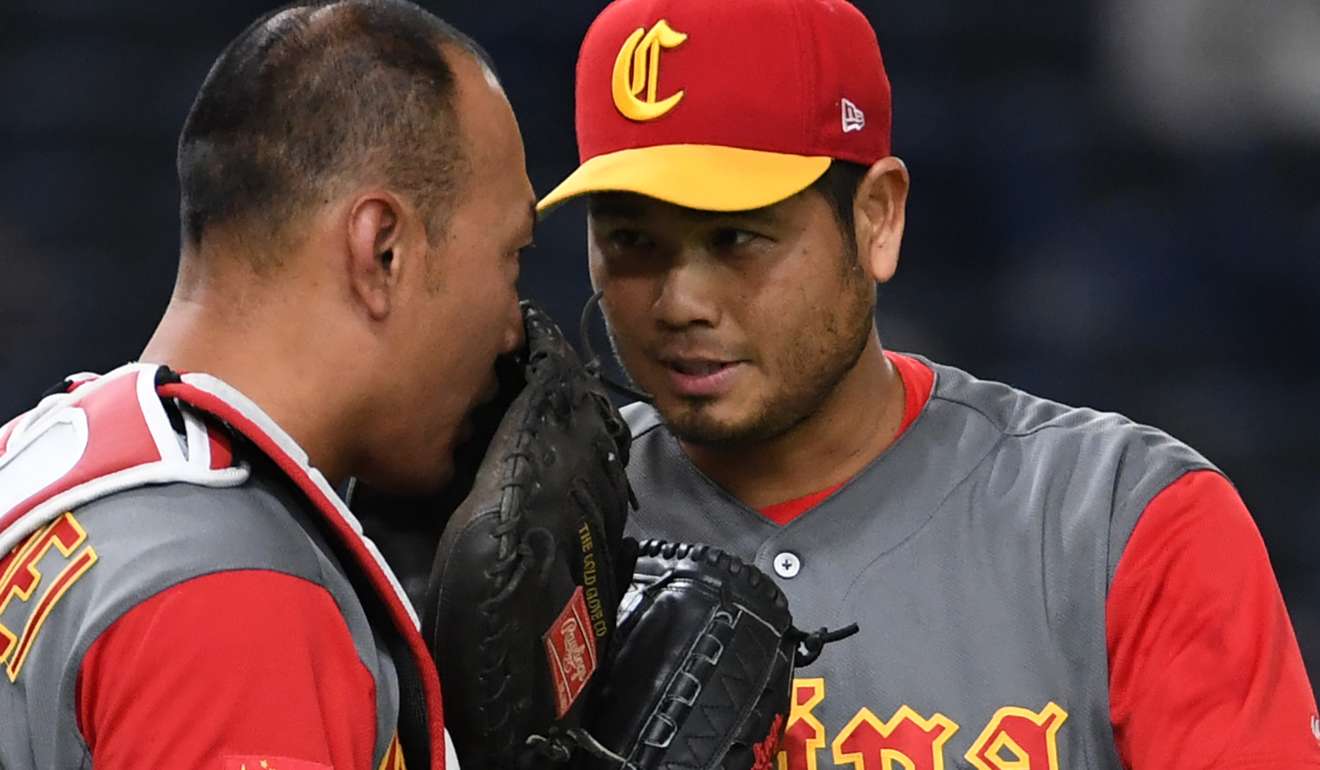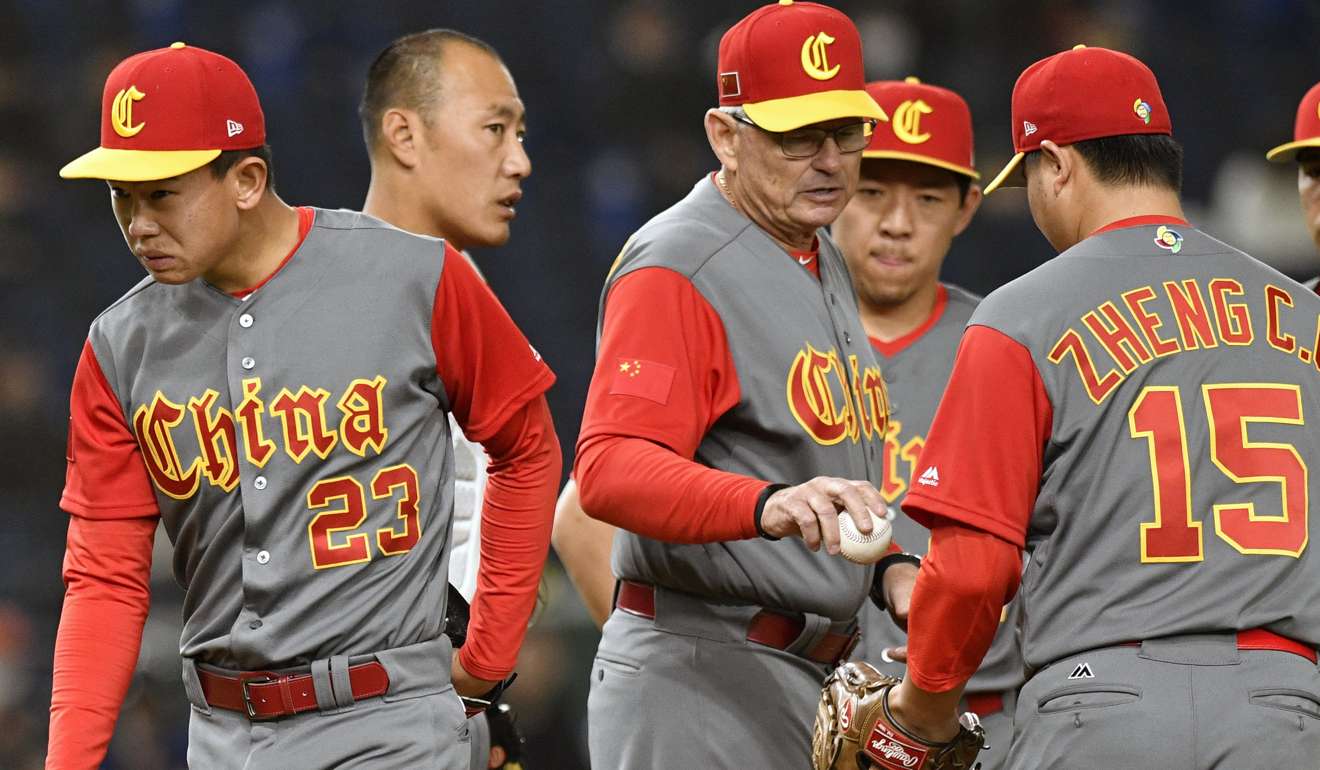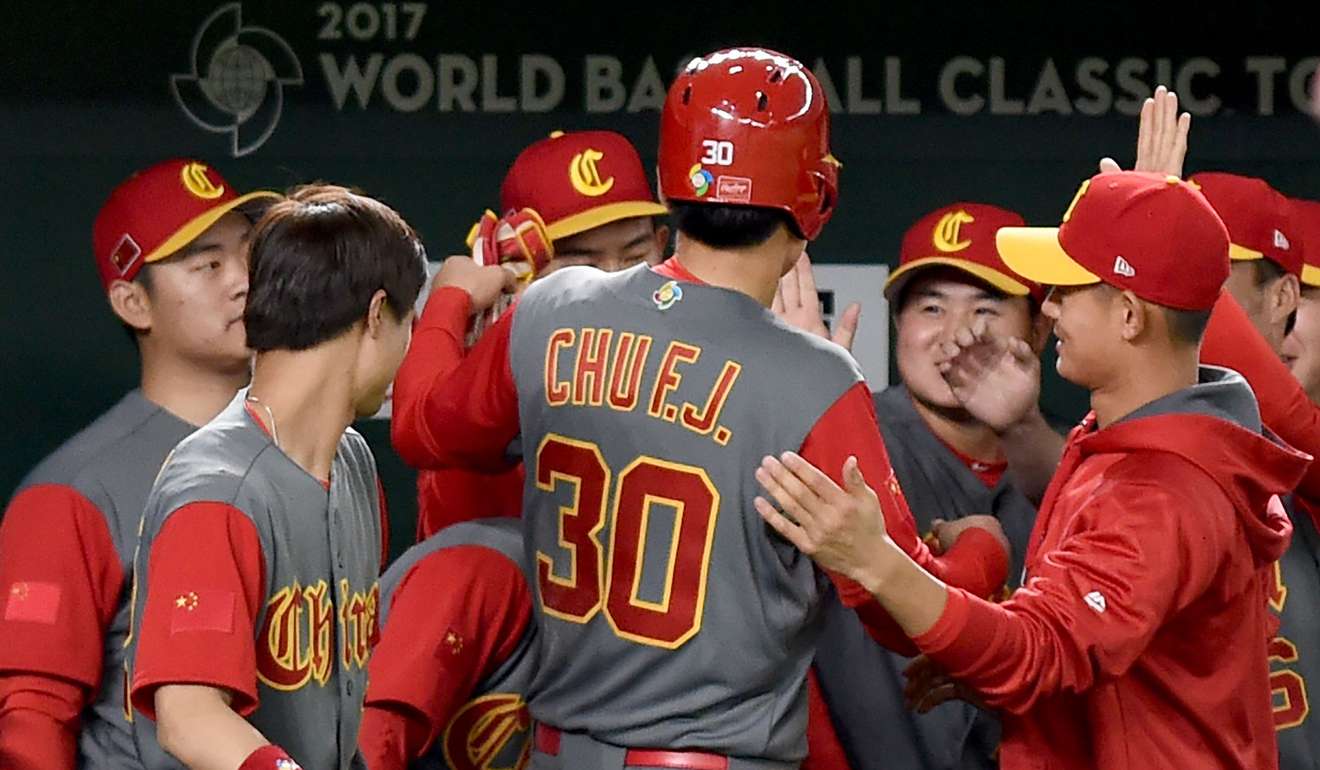
How the World Baseball Classic could reverberate in China and beyond
A future in baseball could be extremely lucrative in markets where the event is flying under the radar
No one would be offended, not even Bruce Chen, if you referred to him as a journeyman. After all, the veteran pitcher has played for 11 major league teams in 17 years.
However, the 39-year-old is a survivor, a baseball lifer who, despite a career record of 82 wins and 81 losses, is nonetheless a fairly wealthy man.
One thing, though, remains unchanged for the nomadic Chen: he has still never been to China. He has, however, now represented the country of his grandparents in an international sporting competition.
When the first round of the fourth World Baseball Classic (WBC) opened this week in Tokyo, Chen was the opening day starter for China as they faced the powerful Cuba team.

His grandfather emigrated to Panama during the Chinese civil war in the late 1940s and Chen, who grew up in Panama City, was initially surprised when the Chinese Baseball Association called last December about representing the country at the WBC.
He discussed it with a number of family members and they were all thrilled, but there was just one problem. Chen had retired nearly two years ago.
How transgender athletes are forcing sports and government authorities to make difficult decisions
“But I wanted to do it to honour my grandparents and represent my heritage,” he said. “I’m giving it my all because I know how important it is for Team China to have a good showing at the WBC.”
Chen did his part, throwing 2.2 scoreless innings before being removed after reaching the tournament max of 49 pitches.
Watch: Cuba 6 China 0 highlights
His successor, Xia Luo, had less luck, giving up four runs in one inning as China lost 6-0 to Cuba before crashing 11-0 to Australia the next day.
Not surprisingly, China will not be advancing to the next round. Still, as baseball tries to grow on the mainland and beyond, more and more tales like Chen’s of ancestral revival are becoming the norm.
Anti-doping rhetoric and hypocrisy ramping up with one-year countdown to Winter Olympics in South Korea
Over in South Korea, Team Israel not only beat the highly touted hosts but Taiwan and the Netherlands as well to advance to the next round in Tokyo. After that the tournament moves to the US where it culminates in the finals at Dodger Stadium on March 22.
There is little chance the upstart Israeli team will be playing in that game. Still, their list of scalps is already impressive and none more so than beating Korea in Seoul.
Watch: Israel 2 South Korea 1 highlights
A proud baseball country and finalists at the 2009 WBC, Korea are finished while the Israeli team, a mixture of a few former big leaguers and a number of minor league players who all have Jewish ancestry, are moving on.
Owned and operated by Major League Baseball (MLB), the WBC is fairly loose and easy with residency rules and rightfully so. Launched in 2006, this is the fourth edition of an event that has absolutely zero traction in the US, the game’s primary market.
How burgeoning MMA superstar Angela Lee handles success by staying in the moment
But flip the script and you realise that the WBC should mean much more to Asia than it does to the US.

MLB has watched as events like the Rugby World Cup, which only began in 1987, swell with significance.
Rugby is hardly a global sport, but it has been pushing aggressively in Asia and will culminate with the 2019 Rugby World Cup being held in baseball crazy Japan.
How the youth of New England became the most entitled offspring since the Roman Empire
Unlike the WBC championship though, winning the Rugby World Cup is the absolute pinnacle of the sport.
Still, winning the WBC was a big deal for 2006 and 2009 champions Japan, as well as 2013 champions Dominican Republic.

While this event is never going to be remotely comparable to football’s mammoth World Cup, at the very least it’s a start and there is no need to take a back seat to other sports looking for a slice of the Asian pie.
Find unique ways to sell it in places like the mainland, where Chinese parents prioritise the need for their offspring to pursue a lucrative career. Tell them about Chen, a decent pitcher who made US$4.5 million in 2013 at the age of 36.
How Roger Federer and Rafael Nadal gave Father Time the slip Down Under
The highest paid professional rugby player in 2013 was England’s Jonny Wilkinson, who made a shade under US$1m playing in France.
There is money in baseball, loads of it. That is irrefutable and should be a prominent component in selling this game to an international audience.
The opportunity is most definitely there with baseball, just ask China’s pitching ace Bruce Chen.

